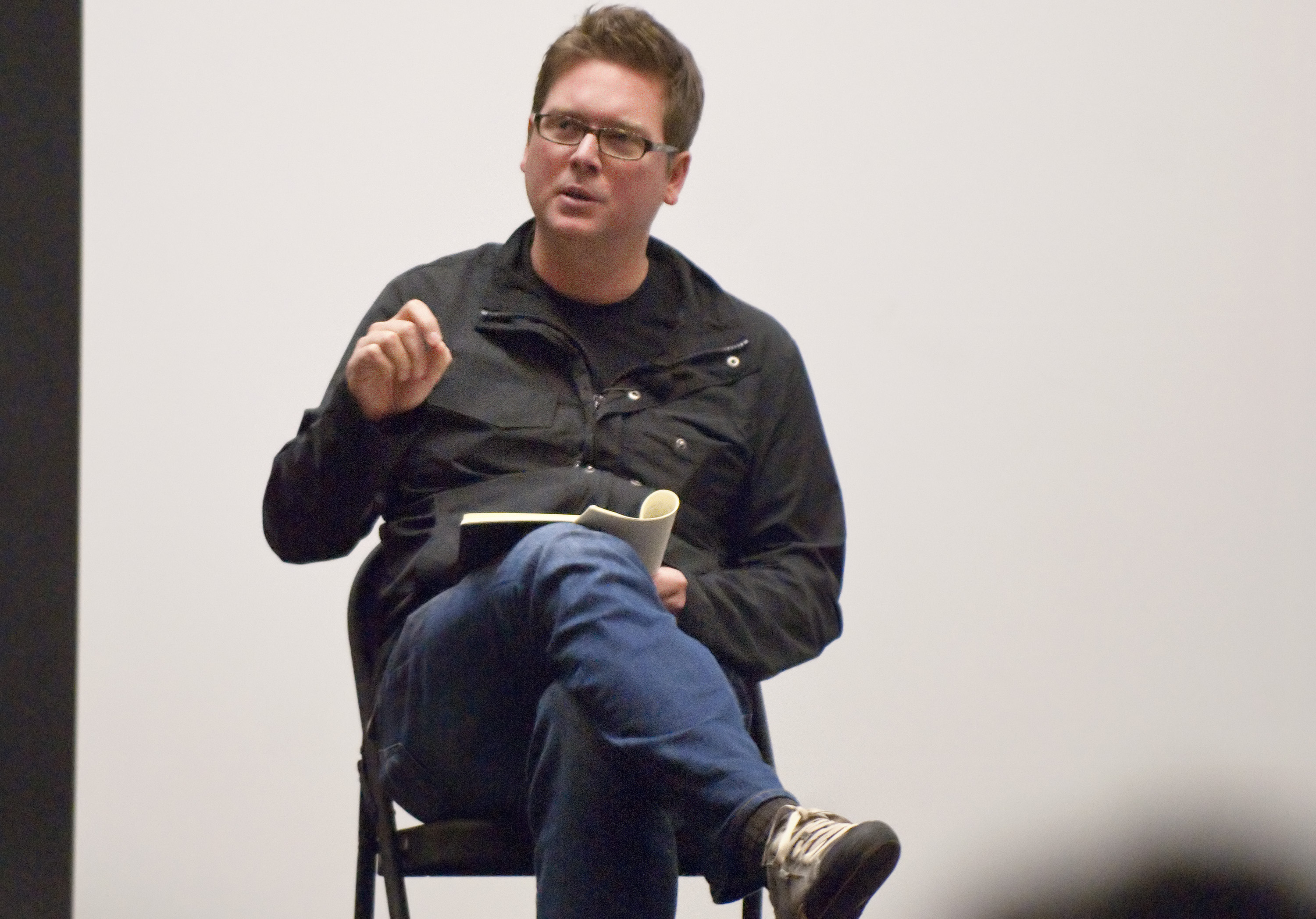Christopher “Biz” Stone has a lot more than 140 characters to say about his most famous start-up, Twitter.
The entrepreneur discussed the company’s origins and his vision for the future of business to a crowd of around 300 people Monday night. The Campus Events Commission event was moderated by UCLA communication studies Professor Steve Peterson.
Stone entered the world of social media through design rather than business. After dropping out of college to work as a book cover artist, he decided to start his own company, learning basic web design to make himself more marketable.
His first start-up was Xanga, one of the first blog hubs, but he left the company soon after helping found it. Stone later worked for Google and co-founded Odeo, a site intended to centralize podcasting, before founding Twitter in 2006.
Stone said Twitter was successful because he and the other founders were emotionally invested in it. One of the turning points was at the 2007 South by Southwest conference. Stone realized Twitter’s potential when, during a night out, one of the festival attendees tweeted at his followers to move to a different, empty bar. It took him eight minutes to walk over to the bar, but by that time, it was already packed.
“They were like a flock of birds moving around an object in flight,” Stone said. “There’s no (other) tool in the world that can make a group of 800 people move instantly together as one.”
At that point, Twitter had just 50,000 users; now it has more than 200 million who tweet more than a billion times a week.
Daniel Soto, CEC speakers director and a third-year geography and environmental science student, said this event was relevant even to students who don’t use the site because Twitter is a worldwide phenomenon.
In addition to the company’s origins, Stone discussed his belief that the future of business will center around social responsibility.
“Consumers … want to buy the (product) that they know is contributing to some cause that they believe in,” he said. “Social responsibility is going to be marketing.”
He said start-ups should align themselves with a cause before they become successful.
“Before you start making money, you can start doing good things for the world,” Stone said.
However, Stone separated philanthropy from support of any political causes. The site received major attention when it was used by protesters in the Egyptian and Tunisian revolts, but Stone said it is important for the site to remain a neutral platform.
After the moderated discussion, Stone answered audience questions. These ranged from inquiries about Twitter’s profitability to where it fits in with traditional journalism.
Christopher Phillips, a third-year Design | Media Arts student, said he came to learn how design fits in with social media, after toying with web design on his own.
Stone had two pieces of advice for student entrepreneurs like Phillips. One was to create their own opportunities; the other was to fail.
“To succeed spectacularly, you must be willing to fail spectacularly,” he said. “Failure is the only way to learn and do it better next time.”
